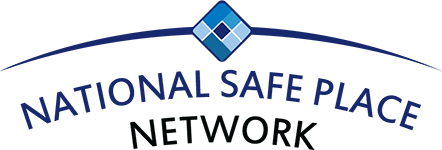By Michelle Hurley, Program Advocate, National Safe Place Network with contributions from Nigeria Adamson, Youth Advisor, NSPN Youth Advisory Board Collaboration Committee and an unnamed Youth Advisor
Education is a key to empowerment. As Nelson Mandela once said, “Education is the most powerful weapon you can use to change the world.” Through education, young people can open the doors to new opportunities – careers, travelling, and meaningful connections with others who share the same interests. However, the most important gift education can bring is a sense of agency, or the power an individual has, through their own thoughts and actions, to shape the world around them.
In 1999, I humbly walked in my first Graduation Ceremony. Donned in a miniature cap and gown, my family cheered in the cafeteria as I walked across the “stage” to shake my kindergarten teacher’s hand. I distinctly remember this moment as one of the first times I grasped the feeling of “pride.” Even as a shy young girl, recognizing my own accomplishments allowed me to feel I could take any challenge head-on.
My education is exactly as Nelson Mandela described – it is my weapon, and I use it every day to change the world. Eighteen years later, after conquering many challenges and finding a taste for coffee, I proudly strutted across an actual stage to accept my diploma for my Master of Social Work degree. Without those years of mandated language arts and science classes, I would not have made it to that point; but the most critical factor was that I was fortunate enough to have role models in my life who championed my successes and supported me through my struggles. Beyond learning how to read and write, I learned that I am author of my own story and I have the ability to write my future how I would like to see it.
When working with young people who are still in school, this is a crucial message. As they grow to develop their individuality, find their passions, and define their own sense of pride, we can be their cheerleaders by acknowledging their accomplishments and encouraging them to continue pushing down barriers they may be facing. Although achieving a higher education is not necessary for success, for many young people, pursuing a high school or college diploma can be a stepping stone in their path toward achieving their goals. Every success, small or large, strengthens their sense of agency.
Through National Safe Place Network’s Youth Advisory Board Collaboration Committee, we reached out to young people who are going through their own educational journey. One of our Youth Advisors shared plans for the upcoming year, which include both education and occupational goals. With respect to privacy, the names of the institutions have been redacted:
My upcoming plans for this school year are to finish high school and [Vocational School]. I am most excited about finishing my vocation trade for horticulture. After graduation, I will look into signing up for college at [a Community College], where I plan to continue to study horticulture and culinary. In addition to going to school for 8 hours a day, I plan to stay employed [in retail]. Working and going to school will be a lot, so I am a little worried about managing my time between them both but these are my goals so I will do my best. One last thing that I would like to accomplish this school year, or before is to get my driver’s permit. To other students returning to school, I would say, “I hope that you enjoy the school year.”
Passion led this Youth Advisor to turn dreams into an action plan. Identifying realistic and concrete action steps is one way we can support young people in working towards their self-identified goals. Nigeria Adamson, another Youth Advisor, had these tips to share with young people who are entering college for the first time:
It’s that time of year again SCHOOL... some may be going to high school or entering college, but we all have that one goal and it’s to graduate. I have some tips if you are entering college...
- 1. Talk to your professor. Know your professor’s office hours. If you don’t understand the class work then ask about it.
- 2. See if you can check out your books from the library instead of buying them or try and rent them.
- 3. Read your syllabus for every class. It helps keep you organized and up to date with tests, quizzes, and it also has your professor’s office hours on it.
- 4. Use the tutoring center. Use the resources they have on campus.
- 5. Do not be scared to make new friends. Join clubs. Have fun.
These tips are not only exceptional steps to excel in school, but also for self-advocacy. Rather than allowing challenges to become overpowering, Nigeria points out the importance of youth using their voices to speak up when they need help, developing strategies to overcome obstacles, and creating a social support network who will rally for their success. This is how education empowers youth – by giving them a sense of power to shape their future. The weapon is in their hands now, and they are using it to change not only our world, but their own.




